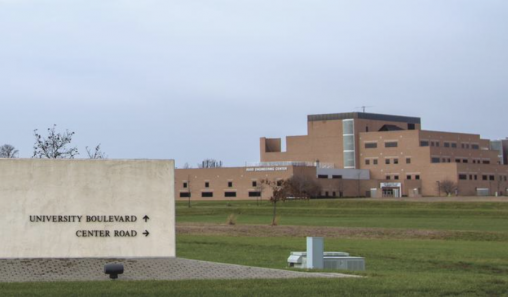Excerpt

The U.S. Air Force and Wright State University are partnering on an initiative that will enable personnel from the Air Force Research Laboratory to access lab space at the university’s Boonshoft School of Medicine.
WSU and AFRL recently signed a 24-month cooperative research and development agreement to advance development of a “multi-organ system model” that will identify the impact of stressors that pilots and airmen endure while performing their missions.
Common stressors include physical exertion, high temperatures, G-forces, pressure changes, low oxygen levels and exposure to chemical contaminants, all of which may impact the body and potentially hinder performance. The model will focus on interactions between stressors and physiological factors, allowing the health and welfare of pilots to be studied.
Saber Hussain, AFRL 711th Human Performance Wing scientist and project lead, said the goal is to develop “scientific knowledge and innovative technologies” to support advanced medical science and technology, and to sustain and restore airmen health and performance in various operating environments.
“This agreement gives us the tools we need to better achieve those goals,” Hussain said in a release.
Under the agreement, AFRL personnel will gain access to a large laboratory space within Wright State’s Department of Pharmacology and Toxicology medical science building, as well as the Pharmacology Translational Unit, which participates in clinical research studies and trials.
It also represents a significant cost savings for the Air Force in terms of laboratory facilities and basic equipment.
Initial discussions about lab space specifics will take place later this year.
By participating in the agreement, WSU will have the ability to offer additional professional development opportunities to its students. The university will also have the potential to submit future joint proposals with AFRL, which could result in additional funding, the university said.
“This collaboration will provide a forum for Wright State University students to improve their analytic skills and capabilities, and will present our students with real-world research activities and internships with the Air Force,” said Jeffrey Travers, chair and professor of the Department of Pharmacology and Toxicology.
View the original story at bizjournals.com

 Wright State to expand nursing facilities to meet workforce needs and prepare more graduates for in-demand careers
Wright State to expand nursing facilities to meet workforce needs and prepare more graduates for in-demand careers  Wright State student-athletes make a lasting impact on local family with more to come
Wright State student-athletes make a lasting impact on local family with more to come  Wright State names Rajneesh Suri dean of Raj Soin College of Business
Wright State names Rajneesh Suri dean of Raj Soin College of Business  ‘Only in New York,’ born at Wright State
‘Only in New York,’ born at Wright State  Wright State president, Horizon League leaders welcome new commissioner
Wright State president, Horizon League leaders welcome new commissioner 